Filter by
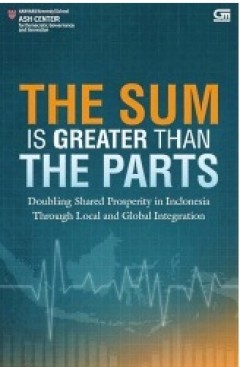
The Sum Is Greater Than The Parts: Doubling Shared Prosperity in Indonesia Th…
The government of Indonesiaís primary development objective is to join the ranks of upper middle-income countries by 2025. If Indonesia could generate an annual real GDP per capita growth rate of 8.5 percent for the next ten years, it would be well on the path to achieving this objective. At current projections, this will not be possible. It will fall short in three fundamental dimensions: grow‚Ķ
- Edition
- 1st print
- ISBN/ISSN
- 978-979-22-9961-8
- Collation
- 274p.; 23 cm
- Series Title
- -
- Call Number
- 330.959 8 HAR s
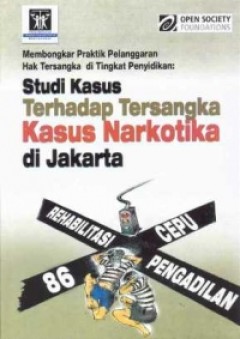
Membongkar Praktik Pelanggaran Hak Tersangka di Tingkat Penyidikan: Studi Kas…
Buku yang anda pegang sekarang memuat laporan dokumentasi yang telah LBH Masyarakat lakukan selama satu tahun sepanjang 2012. Hasil dokumentasi tersebut mangafirmasi cerita - cerita yang sebelumnya pernah kami dengar. Nyaris semua tahanan kasus Narkotika pernah mengalami pelanggaran HAM di tingkat penyidikan, baik upaya paksa yang dilakukan dengan sewenang - wenang oleh pihak kepolisian maupun …
- Edition
- 1st print
- ISBN/ISSN
- 978-979-19579-4-6
- Collation
- viii, 158p.; 21 cm
- Series Title
- -
- Call Number
- 345.056 DHO m
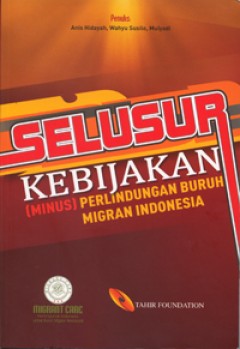
Selusur Kebijakan (minus) Perlindungan Buruh Migran Indonesia
Penelitian yang dilakukan Migrant Care ini melihat seluruh kebijakan yang telah ada mengenai migrasi tenaga kerja sejak masa kolonial hingga tahun 2012, ketika pemerintahan Indonesia telah meratifikasi International Convention on The Protection on The All Rights Migrant Workers and Their Families pada 12 April 2012. Penelitian ini dilakukan untuk mengidentifikasi titik permasalahan dari kebijak…
- Edition
- -
- ISBN/ISSN
- 978-979-19103-2-3
- Collation
- xii, 301p.; 23 cm
- Series Title
- -
- Call Number
- 331.836 HID s
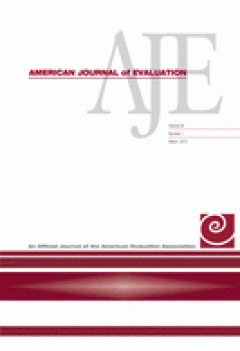
Using the Concept of ‚ÄúPopulation Dose‚ÄĚ in Planning and Evaluating Communi‚Ķ
When planning and evaluating community-level initiatives focused on policy and environment change, it is useful to have estimates of the impact on behavioral outcomes of particular strategies (e.g., building a new walking trail to promote physical activity). We have created a measure of estimated strategy-level impactóďpopulation doseĒóbased on our work in evaluating obesity prevention initiati‚Ķ
- Edition
- Volume 34, Nomor 1, March 2013 p. 71-84
- ISBN/ISSN
- 1098-2140
- Collation
- p. 71-84
- Series Title
- American Journal of Evaluation
- Call Number
- -

You Want Me to Do What? Evaluators and the Pressure to Misrepresent Findings
Evaluators' experiences with being pressured by a key stakeholder to misrepresent findings were investigated in an anonymous survey of a random sample of over 2500 American Evaluation Association members; a response rate of 37% was obtained. Overall, 42% of the respondents had encountered misrepresentation pressure, with 70% of this subgroup having faced it on more than one occasion. Misreprese…
- Edition
- Volume 34, Nomor 1, March 2013 p. 57-70
- ISBN/ISSN
- 1098-2140
- Collation
- p. 57-70
- Series Title
- American Journal of Evaluation
- Call Number
- -

Improving Program Results Through the Use of Predictive Operational Performan…
In Canada, in-depth evaluations of federal programs are intended to occur every 5 years. As such, evaluation is a periodic retrospective (lag) indicator examining results achieved versus program objectives. In a Canadian context, stand-alone evaluations have proved challenging to implement, time consuming, and not well adapted to annual management accountability needs. Consequently, there are i…
- Edition
- Volume 34, Nomor 1, March 2013 p. 45-56
- ISBN/ISSN
- 1098-2140
- Collation
- p. 45-56
- Series Title
- American Journal of Evaluation
- Call Number
- -

The Nature and Frequency of Inclusion of People with Disabilities in Program …
Although evaluation theorists over the last two decades have argued for the importance of including stakeholders from marginalized groups in program planning and research, little is known about the degree of inclusion in program evaluation practice. In particular, we know little about the type and level of inclusion of people with intellectual, developmental, and psychiatric disabilities in the…
- Edition
- Volume 34, Nomor 1, March 2013 p. 23-44
- ISBN/ISSN
- 1098-2140
- Collation
- p. 23-44
- Series Title
- American Journal of Evaluation
- Call Number
- -

Arguments for a Common Set of Principles for Collaborative Inquiry in Evaluation
In this article, we critique two recent theoretical developments about collaborative inquiry in evaluationóusing logic models as a means to understand theory, and efforts to compartmentalize versions of collaborative inquiry into discrete genresóas a basis for considering future direction for the field. We argue that collaborative inquiry in evaluation is about relationships between trained eva‚Ķ
- Edition
- Volume 34, Nomor 1, March 2013 p. 7-22
- ISBN/ISSN
- 1098-2140
- Collation
- p. 7 - 22
- Series Title
- American Journal of Evaluation
- Call Number
- -
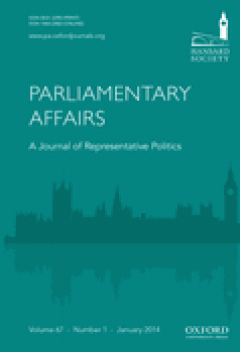
Representing People and Representing Places: Community, Continuity and the …
In late 2011 to early 2012 the four UK Boundary Commissions published their provisional recommendations for new parliamentary constituencies. These were produced according to new rules for redistributions legislated in 2011, which make electoral equality the paramount criterion; organic criteriaósuch as continuity of constituency boundaries and fitting those within the maps of communities rep‚Ķ
- Edition
- Volume 66 Issue 4 October 2013 p. 856-886
- ISBN/ISSN
- 0031-2290
- Collation
- -
- Series Title
- Parliamentary Affairs
- Call Number
- -

Universal Party Primaries and General Election Outcomes: The Case of Uruguay …
What would happen if all parties competing in the electoral game were forced to hold open, binding, concurrent and obligatory primaries constrained by a ĎSore Loser Lawí? The answer to this question has not been explored, perhaps because there is only one democracy in the world that has applied such rules more than once: Uruguay. This country offers a fertile ground for testing some of the hypo‚Ķ
- Edition
- Volume 66 Issue 4 October 2013 p. 834-855
- ISBN/ISSN
- 0031-2290
- Collation
- -
- Series Title
- Parliamentary Affairs
- Call Number
- -

Proportional Prayers: Time for Reflection in the Scottish Parliament
Time for Reflection (TFR) was designed at the inception of the Scottish Parliament in 1999, as an alternative to Westminster Anglican prayers, to provide a weekly opportunity for representatives of religions and belief systems to address the Parliament. Appearances are designed to reflect the diversity of belief in proportion to relative support in the country as evident in the 2001 census. Chr…
- Edition
- Volume 66 Issue 4 October 2013 p. 816-834
- ISBN/ISSN
- 0031-2290
- Collation
- -
- Series Title
- Parliamentary Affairs
- Call Number
- -

Linking Pre-Parliamentary Political Experience and the Career Trajectories of…
This article uses empirical data to establish and analyse the links between pre-parliamentary political experience and career trajectory once elected to the House of Commons. It suggests a move away from the existing occupation focused frameworks towards a broader Ďpolitical experienceí approach which distinguishes between traditional and non-traditional routes into Parliament. The framework is‚Ķ
- Edition
- Volume 66 Issue 4 October 2013 p. 685-707
- ISBN/ISSN
- 0031-2290
- Collation
- -
- Series Title
- Parliamentary Affairs
- Call Number
- -

Brothers all? The Operation of the Electoral College in the 2010 Labour Leade…
This article analyses the wealth of data released by the Labour Party on its 2010 leadership election. We uncover the way in which the list of candidates was expanded via the initial nomination process in the parliamentary Labour Party and highlight the artificiality of some candidacies. We find little evidence in the voting data to support the belief that the Miliband brothers represented tw…
- Edition
- Volume 66 Issue 4 October 2013 p. 708-731
- ISBN/ISSN
- 0031-2290
- Collation
- -
- Series Title
- Parliamentary Affairs
- Call Number
- -

Recall of MPs in the UK: ‚ÄėIf I Were You I Wouldn't Start from Here‚Äô
The publication of a White Paper, Recall of MPs, and a draft Bill for pre-legislative scrutiny, by the UK Government in December 2011 was greeted with almost universal antipathy. In bringing forward the draft Bill Cabinet Office ministers declared their intention to Ďtrigger a debate on what would be the best model for a recall mechanismí and they expressed a willingness Ďto consider alternativ‚Ķ
- Edition
- Volume 66 Issue 4 October 2013 p. 732-751
- ISBN/ISSN
- 0031-2290
- Collation
- -
- Series Title
- Parliamentary Affairs
- Call Number
- -

Making Democracy Work by Early Formal Engagement? A Comparative Exploration o…
Comparative trends in political participation in the West draw a pessimistic picture: younger generations tend to avoid formal politics, opting instead for radical forms of political engagement or opting out altogether from the political process. This trend poses an obvious threat to the core democratic idea of popular control of government. One remedy for this problem, proposed in recent years…
- Edition
- Volume 66 Issue 4 October 2013 p. 752-771
- ISBN/ISSN
- 0031-2290
- Collation
- -
- Series Title
- Parliamentary Affairs
- Call Number
- -

Assessing the Impact of Parliamentary Oversight Committees: The Select Commit…
The departmental select committees of the British House of Commons deal with executive oversight, but not with legislation. This has two important knock-on effects. First, although these committees are permanent, expert, and largely well regarded in Britain, they are often overlooked by omparative scholars. Second, and connectedly, their impact on policy is very difficult to assess. Even in the…
- Edition
- Volume 66 Issue 4 October 2013 p. 772-797
- ISBN/ISSN
- 0031-2290
- Collation
- -
- Series Title
- Parliamentary Affairs
- Call Number
- -

Petitions Systems: Contributing to Representative Democracy?
Focusing on case studies of five different petitions systems, but also drawing on the Coalition government's new e-petitions system, this article identifies a number of characteristics of petitions systems. It argues that as a tool for participation they have the potential to act as a significant input to representative forms of democracy by providing a mechanism to enable the public to express…
- Edition
- Volume 66 Issue 4 October 2013 p. 798-815
- ISBN/ISSN
- 0031-2290
- Collation
- -
- Series Title
- Parliamentary Affairs
- Call Number
- -
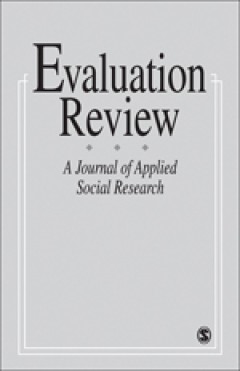
Evaluation Review, Volume 36 Nomor 6 December 2012
- Edition
- -
- ISBN/ISSN
- 0193-841X
- Collation
- -
- Series Title
- -
- Call Number
- -
- Edition
- -
- ISBN/ISSN
- 0193-841X
- Collation
- -
- Series Title
- -
- Call Number
- -

Evaluation Review, Volume 37, Nomor 1 February 2013
- Edition
- -
- ISBN/ISSN
- 0193-841X
- Collation
- -
- Series Title
- -
- Call Number
- -
- Edition
- -
- ISBN/ISSN
- 0193-841X
- Collation
- -
- Series Title
- -
- Call Number
- -

Parliamentary Affairs, Volume 66, Nomor 4 October 2013
- Edition
- -
- ISBN/ISSN
- 0031-2290
- Collation
- -
- Series Title
- -
- Call Number
- -
- Edition
- -
- ISBN/ISSN
- 0031-2290
- Collation
- -
- Series Title
- -
- Call Number
- -
 Computer Science, Information & General Works
Computer Science, Information & General Works  Philosophy & Psychology
Philosophy & Psychology  Religion
Religion  Social Sciences
Social Sciences  Language
Language  Pure Science
Pure Science  Applied Sciences
Applied Sciences  Art & Recreation
Art & Recreation  Literature
Literature  History & Geography
History & Geography